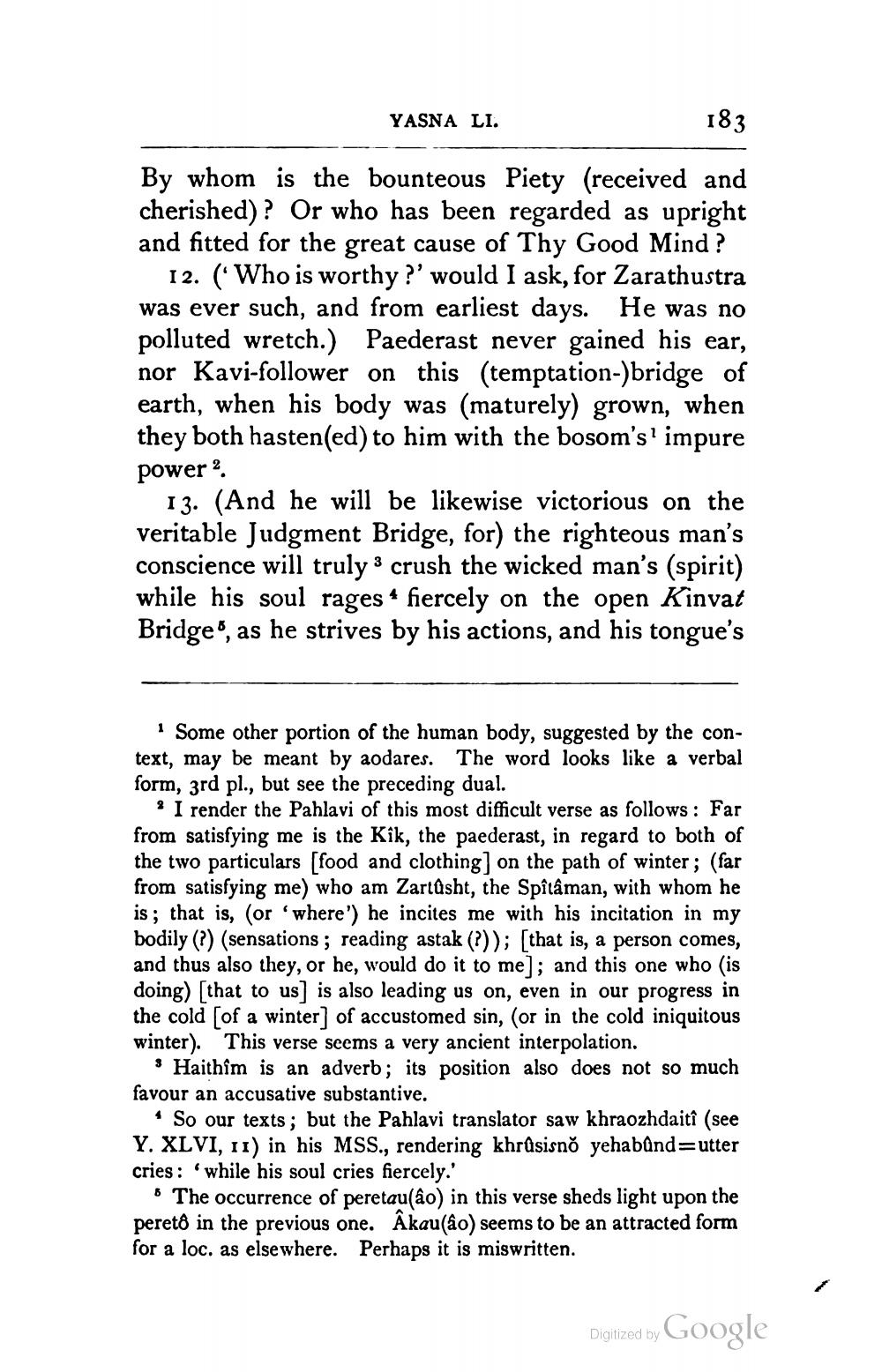________________
YASNA LI.
183
By whom is the bounteous Piety (received and cherished)? Or who has been regarded as upright and fitted for the great cause of Thy Good Mind ?
12. ("Who is worthy ?' would I ask, for Zarathustra was ever such, and from earliest days. He was no polluted wretch.) Paederast never gained his ear, nor Kavi-follower on this (temptation-)bridge of earth, when his body was (maturely) grown, when they both hasten(ed) to him with the bosom's' impure power?
13. (And he will be likewise victorious on the veritable Judgment Bridge, for) the righteous man's conscience will truly 3 crush the wicked man's (spirit) while his soul rages * fiercely on the open Kinvat Bridge', as he strives by his actions, and his tongue's
· Some other portion of the human body, suggested by the context, may be meant by aodares. The word looks like a verbal form, 3rd pl., but see the preceding dual.
? I render the Pahlavi of this most difficult verse as follows: Far from satisfying me is the Kik, the paederast, in regard to both of the two particulars [food and clothing on the path of winter ; (far from satisfying me) who am Zartůsht, the Spîtâman, with whom he is; that is, (or 'where') he incites me with his incitation in my bodily (?) (sensations ; reading astak (?)); [that is, a person comes, and thus also they, or he, would do it to mel; and this one who is doing) [that to us] is also leading us on, even in our progress in the cold [of a winter of accustomed sin, (or in the cold iniquitous winter). This verse seems a very ancient interpolation.
* Haithîm is an adverb; its position also does not so much favour an accusative substantive.
So our texts; but the Pahlavi translator saw khraozhdaitî (see Y. XLVI, 11) in his MSS., rendering khrûsisno yehabûnd=utter cries: while his soul cries fiercely.'
• The occurrence of peretau(ão) in this verse sheds light upon the perető in the previous one. Akau(ao) seems to be an attracted form for a loc. as elsewhere. Perhaps it is miswritten.
Digitized by
Digitized by Google




